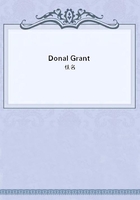
第79章
In the bosom of the family in which the elements seem most kindly mixed, there may yet lie some root of discord and disruption, upon which the foreign influence necessary to its appearance above ground, has not yet come to operate. That things are quiet is no proof, only a hopeful sign of harmony. In a family of such poor accord as that at the castle, the peace might well at any moment be broken.
Lord Forgue had been for some time on a visit to Edinburgh, had doubtless there been made much of, and had returned with a considerable development of haughtiness, and of that freedom which means subjugation to self, and freedom from the law of liberty. It is often when a man is least satisfied--not with himself but with his immediate doings--that he is most ready to assert his superiority to the restraints he might formerly have grumbled against, but had not dared to dispute--and to claim from others such consideration as accords with a false idea of his personal standing.
But for a while Donal and he barely saw each other; Donal had no occasion to regard him; and lord Forgue kept so much to himself that Davie made lamentation: Percy was not half so jolly as he used to be!
For a fortnight Eppy had not been to see her grand-parents; and as the last week something had prevented Donal also from paying them his customary visit, the old people had naturally become uneasy; and one frosty twilight, when the last of the sunlight had turned to cold green in the west, Andrew Comin appeared in the castle kitchen, asking to see mistress Brookes. He was kindly received by the servants, among whom Eppy was not present; and Mrs. Brookes, who had a genuine respect for the cobbler, soon came to greet him. She told him she knew no reason why Eppy had not gone to inquire after them as usual: she would send for her, she said, and left the kitchen.
Eppy was not at the moment to be found, but Donal, whom mistress Brookes had gone herself to seek, went at once to the kitchen.
"Will you come out a bit, Andrew," he said, "--if you're not tired?
It's a fine night, and it's easy to talk in the gloamin'!"
Andrew consented with alacrity.
On the side of the castle away from the town, the descent was at first by a succession of terraces with steps from the one to the other, the terraces themselves being little flower-gardens. At the bottom of the last of these terraces and parallel with them, was a double row of trees, forming a long narrow avenue between two little doors in two walls at opposite ends of the castle. One of these led to some of the offices; the other admitted to a fruit garden which turned the western shoulder of the hill, and found for the greater part a nearly southern exposure. At this time of the year it was a lonely enough place, and at this time of the day more than likely to be altogether deserted: thither Donal would lead his friend. Going out therefore by the kitchen-door, they went first into a stable-yard, from which descended steps to the castle-well, on the level of the second terrace. Thence they arrived, by more steps, at the mews where in old times the hawks were kept, now rather ruinous though not quite neglected. Here the one wall-door opened on the avenue which led to the other. It was one of the pleasantest walks in immediate proximity to the castle.
The first of the steely stars were shining through the naked rafters of leafless boughs overhead, as Donal and the cobbler stepped, gently talking, into the aisle of trees. The old man looked up, gazed for a moment in silence, and said:--
"'The heavens declare the glory o' God, an' the firmament showeth his handy-work.' I used, whan I was a lad, to study astronomy a wee, i' the houp o' better hearin' what the h'avens declared aboot the glory o' God: I wud fain un'erstan' the speech ae day cried across the nicht to the ither. But I was sair disapp'intit. The things the astronomer tellt semple fowk war verra won'erfu', but I couldna fin' i' my hert 'at they made me think ony mair o' God nor I did afore. I dinna mean to say they michtna be competent to work that in anither, but it wasna my experrience o' them. My hert was some sair at this, for ye see I was set upo' winnin' intil the presence o' him I couldna bide frae, an' at that time I hadna learnt to gang straucht to him wha's the express image o' 's person, but, aye soucht him throuw the philosophy--eh, but it was bairnly philosophy!--o' the guid buiks 'at dwall upo' the natur' o' God an' a' that, an' his hatred o' sin an' a' that--pairt an' pairt true, nae doobt! but I wantit God great an' near, an' they made him oot sma', sma', an' unco' far awa'. Ae nicht I was oot by mysel' upo' the shore, jist as the stars war teetin' oot. An' it wasna as gien they war feart o' the sun, an' pleast 'at he was gane, but as gien they war a' teetin' oot to see what had come o' their Father o' Lichts. A' at ance I cam to mysel', like oot o' some blin' delusion. Up I cuist my e'en aboon--an' eh, there was the h'aven as God made it--awfu'!--big an' deep, ay faddomless deep, an' fu' o' the wan'erin' yet steady lichts 'at naething can blaw oot, but the breath o' his mooth! Awa' up an' up it gaed, an' deeper an' deeper! an' my e'en gaed traivellin' awa' an' awa', till it seemed as though they never could win back to me.